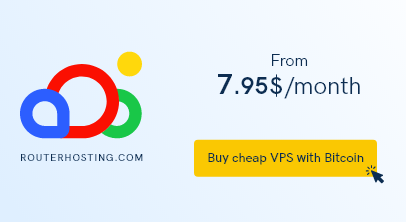Online businesses are growing by leaps and bounds. As more and more consumers become comfortable interacting with companies online and more and more companies gain the ability to transact their business on the internet, there’s a seismic shift happening in how people do business.

Such a change would’ve been unthinkable just two decades ago, but today about a third of all business in the U.S occurs online. And when it comes to buying goods, 80% of Americans regularly purchase on the internet. In 2021, online eCommerce transactions tipped $4.55 trillion, the highest amount ever recorded.
There’s certainly a great deal of online business and an even more tremendous amount of competition to get it. So what does it take to set your company apart? What do you need to run a successful online business?
#1: Quality insurance coverage
One thing every business needs, whether it operates online or not, is an excellent insurance policy. Getting coverage to protect your business is a routine part of your business expenses you shouldn’t overlook.
Take the time to research policies to learn what kind of insurance your business will need. A great place to start is with a general liability policy. This type of insurance protects your business from almost any issue you can think of, including property damage, bodily injury, reputational harm, and even advertising injury.
All companies need general liability insurance for the what-if moment every entrepreneur faces from time to time. But some may require more specialized coverage to protect their business assets fully. Here are a few more policies you may want to consider as an online business:
- Product liability: Product liability insurance is worthwhile if you sell a physical product. This coverage protects your business if your products are defective and don’t work as intended. In addition, product liability policies cover property damage or bodily harm to the user and protect the insured from lawsuits, too.
- Professional liability: This policy is for you if you’re providing a professional service. Professional liability protects your company when you don’t deliver your services in quality or timely manner. This includes errors and omissions, as well as missed deadlines.
- Commercial property & automotive: As an online business, you might not have a storefront or even a formal office, but you still need to protect the place where you do business. And even if your workplace is your home, you need to cover your office and its contents from damage if the unthinkable occurs. The same goes for your vehicle. Whether you have a dedicated fleet vehicle or just use your personal car for business purposes, a commercial auto policy will cover damages if you get in an accident or fender bender.
- Workers’ compensation: If you have employees, your state probably requires you to have workers’ compensation. But even if you don’t live in a workers’ compensation state, having this policy is always wise. Workers’ compensation comes in handy if an employee gets injured on the job and covers costs associated with medical treatment, lost wages, retraining, and even includes survivor benefits.
Securing the right insurance policy is necessary for every business, but it’s by no means the only thing you should do to ensure success for your online business. Because once you know what insurance you need, you must decide which company will provide it.
#2: Reliable vendors
Selecting an insurance provider only scratches the surface of the many vendors you’ll need to choose for your online business. Obviously, you need an internet provider (a good one) and a vendor for basic office supplies.
Online businesses usually try to keep their overhead costs low and are known for outsourcing a lot of their work. For example, instead of having their departments for human resources, marketing, and accounting, online companies contract with businesses that already provide expert services in those disciplines. Beyond that, your vendor needs to depend on the type of work you do.
#3: Well-designed website
Your website is the bread and butter of your business. It’s where most, if not all, of your leads land, and it’s also your primary conversion tool once your customers come to your digital space. The bottom line: you can’t blow this opportunity.
Your business’s success or failure hinges on your website’s user experience. Here are a few things you can do to make sure your website’s user experience is top-notch:
- A consistent header and footer
- Well-designed site navigation
- High-quality images and videos
- Clear, concise text
- Plenty of internal and external linking
- Fast load times
That last one is critical—just a one-second delay in your website load time can cost you 7% of your leads. People are used to fast websites and don’t have the patience for anything less. If your website takes too long to load, customers will bounce to a website that delivers faster.
And if there’s an eCommerce element to your website, that matters too! Make sure you have a clean, quick checkout experience that’s free of bugs and easy to use. An optimized checkout can increase conversions by 35.26%.
#4: SEO Strategy
Having a high-quality website is great, but if you want your business to really be successful, customers actually need to find your site. The internet is comprised of trillions of web pages. So how will users find yours? The answer lies in Search Engine Optimization (SEO).
Ultimately, Google decides how many users it directs to your website. And the way you get Google’s attention? SEO. Here are a few tips to optimize your website for SEO:
- Identify the right keywords and use them sparingly
- Add a meta title and meta description to your pages
- Earn backlinks from other websites
- Include internal links to pages within your site
- Regularly update content, like blog articles, to build more indexed pages
Admittedly, SEO is a complex science, and these tips are just the beginning of everything you can do to optimize your site’s performance on Google. When in doubt, use Google Analytics on your site to get essential SEO insights.
Ready to take on the multi-trillion dollar online business world? No company truly is. But what separates the successes from the failures is the ability to understand the factors affecting your business and adapt when necessary. You got this!





